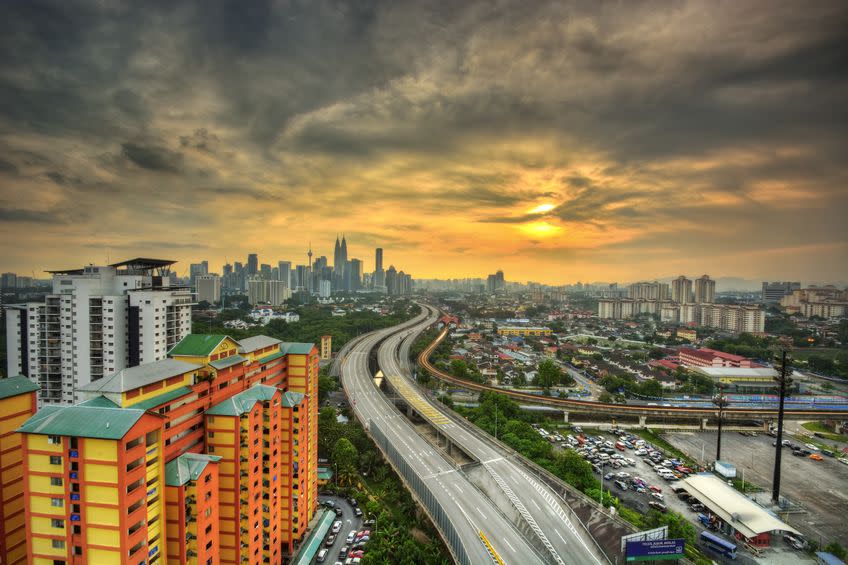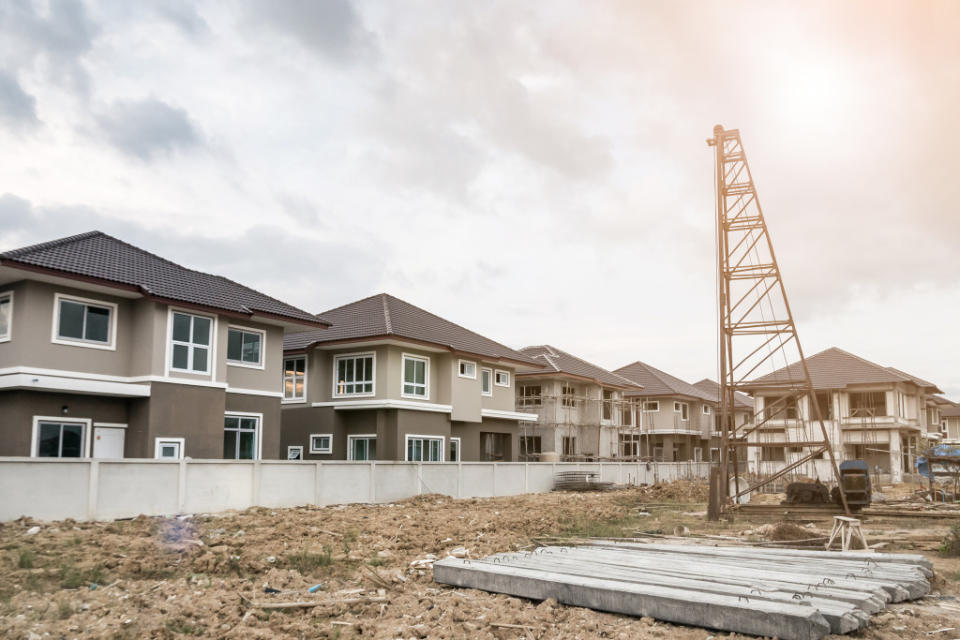Gov’t Urged To Slash Income Limit To Buy PR1MA Homes, Vacancy Tax May Be The Answer To Malaysia’s Property Overhang Woes And, More

12th September – 18th September
The government has been urged to revise the eligibility criteria for buying affordable homes under the PR1MA project, lowering minimum household income from RM2,500 to RM2,000.
Meanwhile, Khazanah Research Institute’s Theebalakshmi Kunasekaran believes vacancy tax will help address the issue of property overhang in Malaysia.
1. Gov’t urged to slash income limit to buy PR1MA homes
The government has been urged to revise the eligibility criteria for buying affordable homes under the PR1MA project, lowering minimum household income from RM2,500 to RM2,000.
According to MP Roslan Hashim (PN-Kulim Bandar Baharu), slashing the income limit will help those within the lower-income group to acquire their first home.
He also called on the government to expedite as well as increase the number of homes built under the scheme, reported Free Malaysia Today.
He also suggested allocating reserved state land within Felda areas to second- and third-generation settlers, which will enable them to construct their houses at their own cost.
“If this initiative succeeds, it will undoubtedly encourage more young people to reside in rural areas and cultivate their own land,” said Roslan.
2. Vacancy tax may be the answer to Malaysia’s property overhang woes
Khazanah Research Institute’s Theebalakshmi Kunasekaran believes vacancy tax will help address the issue of property overhang in Malaysia.
This comes as an implementation of the tax will force developers to exercise caution when planning residential projects, preventing an oversupply of products which can contribute to the property glut, reported The Star.
The tax will also curb speculative activities by people who buy units to make quick profits, said Theebalakhsmi.
She pointed that the presence of vacant units will lead to disinvestment in townships as developers and businesses no longer want to invest in the neighbourhoods.
As such, vacancy tax will force developers and homeowners to sell or rent out their empty units to avoid the tax.
“Consequently, this will provide home buyers with access to affordable housing options as developers lower their price through ‘fire sales’ to clear the glut,” she said.
3. Gov’t to limit purchase of citizens to just one affordable home
The government eyes to enforce a new regulation which will limit the purchase of eligible citizens to just one affordable home.
This is to ensure there is adequate affordable housing supply for those who need it most.
With this, a housing database will be established to enable a more accurate cross-qualification screening of ownership information, said the Ministry of Economy in its 12th Malaysia Plan (12MP) Mid-Term Review (MTR).
The government also plans to establish a land inventory information which integrates all data on waqf land to identify suitable land for affordable housing, reported Bernama.
The “exit policy” regulation for public housing will also be enforced on overqualified tenants, said the ministry.
The 10-year-old moratorium period on the resale of homes will also be expanded to include public housing.
As such, a comprehensive study will be carried out to explore strategies as well as initiatives in managing affordable home supply via the secondary market.
4. Johor amends law to strengthen state agency’s role in public, affordable housing
The state government of Johor has amended the State Housing Development Corporation (PKPJ) Enactment 1976 to enhance the agency’s role in managing affordable housing, public housing and Bumiputera real estate matters.
According to Jafni Shukor, Chairman of the State Housing and Local Government Committee, the amendment aims to facilitate the processes relating to real estate and housing within the state, benefitting the public and stakeholders, like developers and consultants.
The amendment will see PKPJ provide consultation service to industry players as well as connect with related agencies through the planning, development and review committee (PDRC) platform, reported Bernama.
“In addition, PKPJ is also able to carry out monitoring effectively through strategic cooperation between agencies, as well as implement punitive actions that have legal authority as the last step in carrying out functions and responsibilities,” said Jafni.
He noted that the intervention with developers is important in meeting the state’s goal of constructing 30,000 affordable housing units by 2026.
In fact, Coordinating PDRC’s work has proved effective in completing seven sick projects which involved 1,073 units from 2022 onwards, he added.
5. Malaysia’s property market stable in 1H 2023
Malaysia’s property market registered a stable performance in the first half of this year, with transactions value rising 1.1% year-on-year to RM85.37 billion.
Transactions volume, however, declined marginally by 2.1% to 184,140 units in 1H 2023 from 188,002 units over the same period last year, reported Bernama.
Deputy Finance Minister I Datuk Seri Ahmad Maslan revealed that the residential segment continued to drive the market, accounting for over 60% of the total transaction volume and almost 53% of the total transaction value.
He noted that the overhang situation within the residential segment also improved, with unsold units dropping 5.3% to 26,286 units worth RM18.3 billion in 1H 2023 from 27,746 units valued at RM18.4 billion in 2H 2022.
Meanwhile, residential construction activity in Malaysia posted a decline in completion, starts as well as new planned supply, falling 10.4%, 1.2% and 15.8%, respectively, over the same period last year.
Looking ahead, Ahmad expects the property market’s performance to improve in 2H 2023, on the back of political stability as well as the launch of major national policies like the Madani Economy, Mid-Term Review of the 12th Malaysia Plan, National Energy Transition Roadmap and New Industrial Master Plan 2030.
6. LPHS to take legal action against defaulters
The Selangor Housing and Property Board (LPHS) warned that it will take legal action against flat owners with outstanding maintenance fees.
The state housing board made the statement in response to reports of illegally renovated and unpaid maintenance fees at Flat PKNS Tapak Maha within Taman Datuk Harun, Petaling Jaya.
LPHS revealed that the defaulters had already been identified by the Commissioner of Building (COB), while the Building Control Unit of Petaling Jaya City Council (MBPJ) had been tasked to take action, reported The Star.
It was previously reported that 50% of flat owners at the Tapak Maha flats have defaulted in paying their monthly maintenance fee of RM25.
This leaves the joint management body (JMB) struggling with debts amounting to hundreds of thousands of ringgit. The JMB also finds it hard to maintain common areas due to lack of funds.
LPHS said it is the responsibility of unit owners to pay their financial obligations to the JMB.
Built in 1983, the walk-up flat scheme features 360 units spread across five blocks.
7. Guan Eng urges gov’t to create special financial zone in Penang
Bagan MP Lim Guan Eng has urged the government to establish a special financial zone (SFZ) in Penang, much like the one in Johor’s Forest City.
He pointed that an SFZ in Penang will not only benefit the state’s economy, but also the whole country, reported Malay Mail.
“As Penang now has a critical mass with a mature manufacturing industry, this will drive the development and planning of the growth of the service sector,” said the former finance minister.
A 15% tax and multiple entry visa will help attract highly skilled workers as well as restrict the outflow of talented Malaysians.
“If possible, one for the south of Malaysia and another one for the north,” said Guan Eng.
Prime Minister Datuk Seri Anwar Ibrahim previously announced plans to establish an SFZ in Forest City by offering certain incentives to reduce the cost of doing business across multiple sectors such as tourism, health and education.




